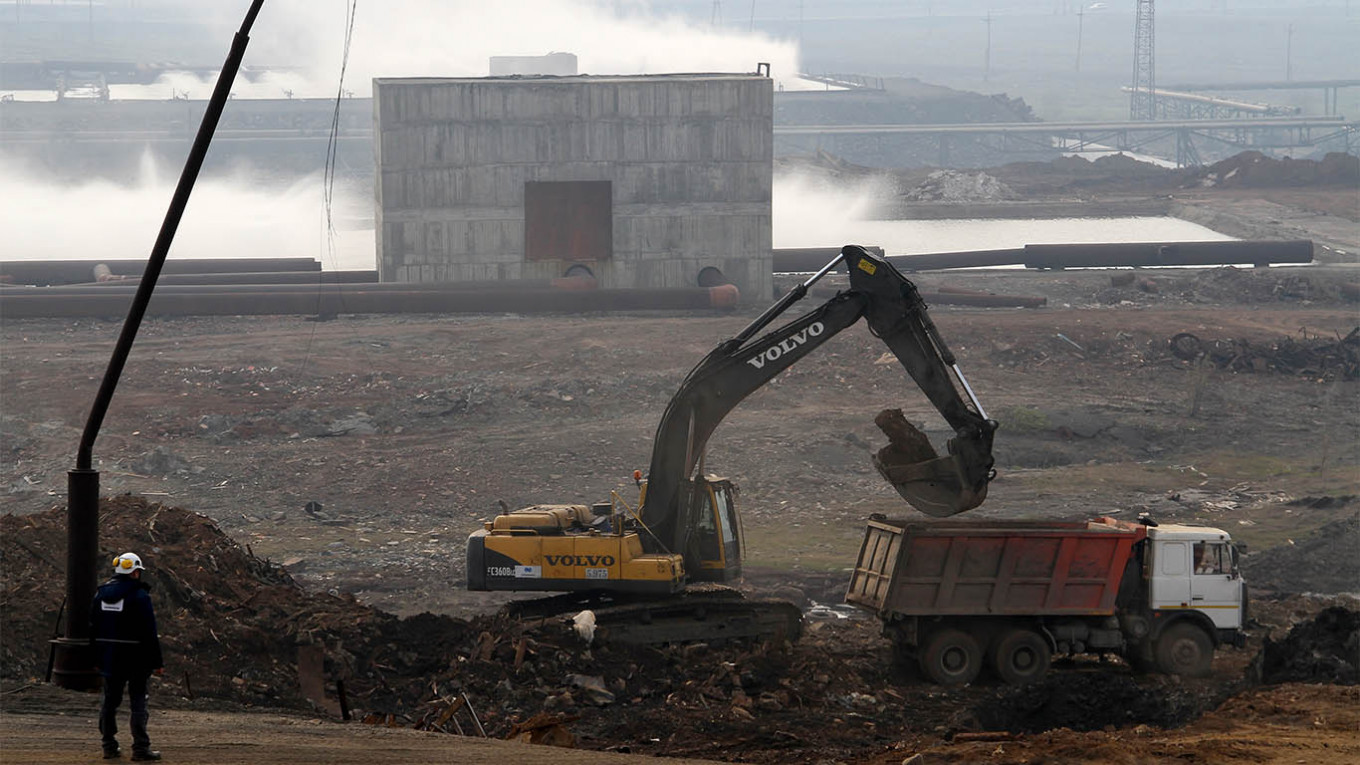
Russia’s prosecutor general on Friday ordered a review of hazardous structures built on permafrost after concluding that a huge Arctic fuel spill last week was caused by shifting ground.
The office of the prosecutor general said in a statement that a preliminary conclusion of the spill’s causes is the “sagging of the ground and the concrete foundation” which caused the reservoir’s failure.
A state of emergency was announced after 21,000 tons of diesel fuel spilled from a reservoir that collapsed last Friday outside Norilsk, polluting huge stretches of river and triggering a major cleanup effort.
“To prevent a similar situation on especially hazardous structures on territories prone to melting of permafrost,” the prosecutor general has “ordered a comprehensive review of such objects.”
Russia is vulnerable to climate change because much of its economic infrastructure is located in areas that have been locked by permafrost but are starting to thaw amid warmer temperatures.
A vast Arctic state, Russia is warming 2.5 times faster than the world average.
Sixty-five percent of the country’s territory is covered by permafrost, and the environment ministry warned in 2018 that the melt threatens pipes and structures, as well as buried toxic waste, which can seep out and endanger waterways.
Norilsk Nickel, the company that owns the collapsed reservoir through a subsidiary, has said it suspects unstable ground led to damage to the fuel tank.
Norilsk, one of the country’s biggest industrial centers, is located above the Arctic circle and the city is struggling to cool foundations of residential buildings as the ground becomes unstable.
